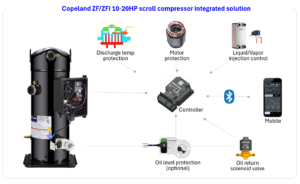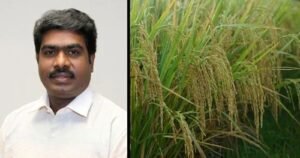Thursday, 5 March 2026
Nescafé surpasses 2025 regenerative agriculture goal
The adoption of these practices is also helping reduce greenhouse gas emissions (GHG) in coffee Nescafé, Nestlé’s largest coffee brand, sourced 32 per cent of its coffee from farmers implementing…

The adoption of these practices is also helping reduce greenhouse gas emissions (GHG) in coffee
Nescafé, Nestlé’s largest coffee brand, sourced 32 per cent of its coffee from farmers implementing regenerative agriculture practices in 2024. This achievement surpasses Nescafé’s 2025 goal of 20 per cent, reflecting the strong traction that regenerative agriculture is gaining among coffee farmers, according to the latest Nescafé Plan 2030 Progress Report.
Nescafé is supporting coffee farmers’ transition to practices like optimised fertilisation, soil cover, mulching and composting, with the aim of improving productivity and lowering their costs. The adoption of these practices is also helping reduce greenhouse gas emissions (GHG) in coffee. In 2024, participants of the Nescafé Plan achieved a reduction ranging from 20 per cent to 40 per cent of GHG emissions per kilogram of green coffee.
The challenges posed by climate change were acutely felt in the coffee sector this past year, across several coffee-producing countries, where farmers experienced adverse weather conditions. This has resulted in record-high global prices for both arabica and robusta coffee and less coffee available, underscoring the urgent need for more resilient coffee supply chains.
Axel Touzet, Head of Nestlé’s Coffee Brands Strategic Business Unit, said: “Regenerative agriculture is at the heart of the Nescafé Plan and our efforts to build resilience in our coffee supply chain. This third Progress Report shows that farmers are becoming increasingly aware of the benefits of these practices, as shown by the increased adoption rates. This encourages us to continue the work we do with our partners, suppliers and farmers in the regions where we source our coffee.”
Technology
Copeland Launches ZF/ZFI 10-20HP Scroll Compressors
Mar 05, 2026 | Company News
WA Scientists Discover New Deep-Sea Crustacean Stocks with Strong Commercial Potential
Mar 05, 2026 | Australia
Food Testing
NSF and Circle H Collaborate to Enable Global Certification Access
Mar 04, 2026 | Company News
Australian Medical Bodies Push for Compulsory Health Star Labelling
Feb 24, 2026 | Australia
Tim Hortons Singapore Secures Majlis Ugama Islam Singapura Halal Certification Ahead of Ramadan
Feb 23, 2026 | Company News
More Popular
Copeland Launches ZF/ZFI 10-20HP Scroll Compressors
Mar 05, 2026 | Company News
Singapore Expands Support for Local Farms to Strengthen Food Security
Mar 05, 2026 | Food Security






